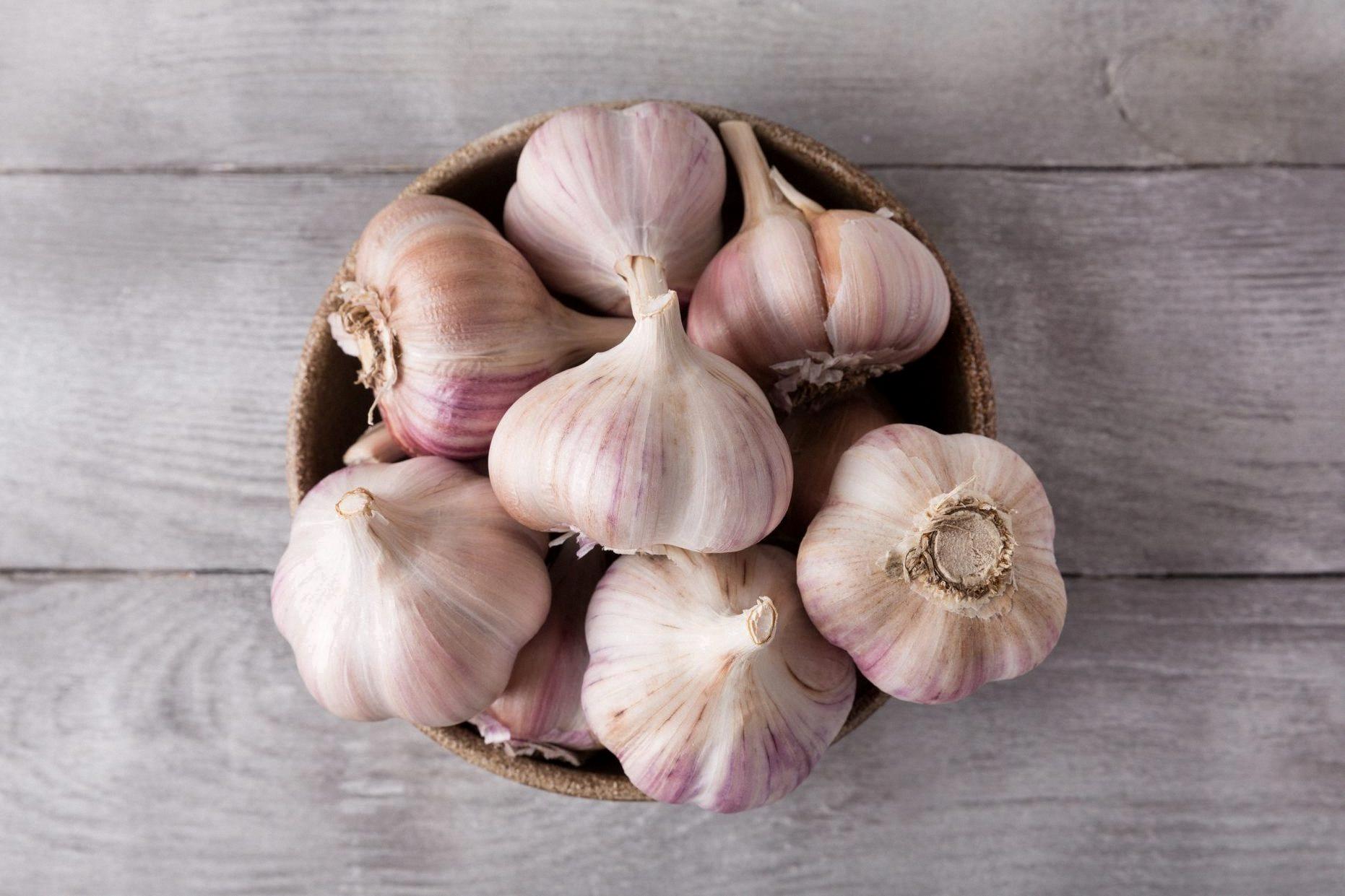Garlic is a popular ingredient in many dishes around the world. It is known for its unique flavor and aroma, but it also has some potential health benefits. However, garlic is also known for causing some digestive issues, including gas and diarrhea. This has led some people to wonder whether garlic can actually make you poop.
First, let’s take a closer look at why garlic can cause digestive issues. Garlic contains compounds called fructans, which are a type of carbohydrate that can be difficult for some people to digest. When thee fructans reach the large intestine, they can ferment and produce gas, leading to bloating, cramps, and diarrhea.
So, does garlic make you poop? The short answer is yes, it can. Garlic can have a laxative effect on some people, which means it can help to stimulate bowel movements and promote regularity. However, this is not the same as causing diarrhea. Laxatives work by softening the stool and making it easier to pass, while diarrhea is characterized by loose, watery stools.
It’s worth noting that the laxative effect of garlic is not guaranteed. Some people may experience constipation instead of diarrhea when they consume garlic. This is because everyone’s digestive system is different, and some people may be more sensitive to the fructans in garlic than others.
Despite the potential digestive issues, garlic has many other potential health benefits. It is rich in antioxidants, which can help to protect your cells from damage and reduce inflammation. Garlic may also help to lower cholesterol, improve heart health, and even boost immune function.
If you enjoy the flavor of garlic but find that it causes digestive issues, there are a few things you can try. First, you can try cooking garlic instead of eating it raw. Cooking can help to break down the fructans and make garlic easier to digest. You can also try reducing your intake of garlic or avoiding it altogether if your symptoms are severe.
Garlic can potentially make you poop due to its laxative effect, but this is not guaranteed for everyone. Garlic can also cause gas and diarrhea in some people due to the fructans it contains. Despite these potential side effects, garlic has many health benefits and can be a delicious addition to many dishes. If you experience digestive issues after consuming garlic, try cooking it or reducing your intake to see if that helps.
The Effects of Eating Lots of Garlic on Bowel Movements
Consuming lots of garlic can make you poop. Garlic contains a compound called fructans, which is a type of carbohydrate that some people have difficulty digesting. When fructans reach the large intestine undigested, they can ferment and cause gas and bloating. This, in turn, can lead to increased bowel movements and loose stools. Additionally, garlic has a natural laxative effect, which can also contribute to increased bowel movements. Therefore, if you eat a lot of garlic, it is not uncommon to experience digestive discomfort and more frequent trips to the bathroom.

Source: tasteofhome.com
The Effects of Garlic as a Laxative
Garlic can have laxative effects. Garlic contains a compound called allicin, which stimulates the digestive system and can help promote bowel movements. Additionally, garlic has been shown to have antibacterial properties that can help eliminate harmful bacteria in the gut, which can also contribute to improved bowel regularity. However, it’s important to note that excessive consumption of garlic can lead to digestive discomfort and diarrhea, so it’s best to consume it in moderate amounts. As with any dietary supplement or remedy, it’s always a good idea to consult with a healthcare provider before using garlic as a laxative or for any oher health purposes.
The Effects of Eating Too Much Garlic on Digestion
Yes, too much garlic can cause diarrhea as one of its side effects. Garlic contains a compound called allicin, which can irritate the gastrointestinal tract and lead to digestive discomfort. Additionally, raw garlic is more likely to cause diarrhea than cooked garlic because it contains more of the irritant compounds. However, it’s important to note that not everyone will experience diarrhea from consuming garlic, and the severity of the side effect can vary from person to person. If you experience diarrhea after consuming garlic, it’s best to reduce your intake or avoid it altogether to prevent further discomfort.
The Benefits of Fresh Garlic for Constipation Relief
Fresh garlic has been used for centuries as a natural remedy for various health conditions, including constipation. Garlic contains a compound called allicin, which has anti-inflammatory and antibacterial properties that can help improve digestion and relieve constipation. Additionally, garlic is rich in fiber, which is essential for promoting bowel movements and preventing constipation. However, it is important to note that consuming too much garlic can also cause digestive discomfort and diarrhea. Therefore, it is recommended to consume garlic in moderation and consult with a healthcare provider before using it as a treatment for constipation.
The Effects of Garlic on Colon Cleansing
Garlic has been found to have several health benefits, including its ability to cleanse the colon. Garlic contains antibacterial, antiparasitic, and antiviral compounds that help remove toxins, parasites, and pathogens from the colon. These compounds work by stimulating the production of digestive enzymes, wich help to break down food and eliminate waste from the body. Garlic also contains sulfur compounds that help to detoxify the liver and improve liver function, which can further support colon health. Additionally, the high fiber content in garlic helps to promote regular bowel movements, which is important for colon health. while garlic alone may not be a complete colon cleanse, it can certainly contribute to a healthy colon and digestive system.

The Benefits of Eating Garlic for Gut Health
Garlic is good for your gut health due to its high content of inulin, a type of non-digestible carbohydrate that acts as a prebiotic. Prebiotics are essentially a type of fiber that feeds the good bacteria in your digestive system, promoting their growth and activity. Inulin specifically has been found to increase the number of bifidobacteria in the gut, which are important for maintaining a healthy gut microbiome. By promoting the growth of tese beneficial bacteria, garlic can help improve overall gut function and support digestive health. So, incorporating garlic into your diet can be a great way to support your gut health.
The Effects of Garlic on Bowel Movements
Garlic can make your poop soft. Garlic is a high-fiber vegetable that contains fructans, which are a type of carbohydrate that can be difficult for some people to digest. Additionally, garlic contains sulfur compounds that can cause irritation in the digestive tract, leading to loose stools. However, the effect of garlic on bowel movements can vary from person to person, as some individuals may be more sensitive to its effects than others. If you find that garlic consistently causes soft stools or other digestive issues, it may be best to limit your intake or speak with a healthcare provider.
The Benefits of Eating Garlic for the Body
Garlic is a powerful ingredient that can benefit your body in various ways. Firstly, it contains antioxidants that help protect your body against oxidative damage caused by free radicals. These antioxidants also support your body’s natural defense mechanisms. Additionally, studies have shown that high doses of garlic supplements can increase antioxidant enzymes in humans, which can help reduce oxidative stress in people with high blood pressure. Furthermore, garlic has been shown to have anti-inflammatory properties, which can help reduce inflammation in the body. Garlic is also known for its immune-boosting properties, which can help fight off infections and diseases. Lastly, garlic has been shown to have a positive effect on heart health by reducing cholesterol levels and improving blood flow. incorporating garlic into your diet can provde numerous health benefits for your body.
The Effect of Garlic on Weight Loss
Garlic has been known for its medicinal properties for centuries. It is a natural appetite suppressant that can help in weight loss. Garlic cotains allicin, a compound that has been shown to boost metabolism and increase fat burning. This means that consuming garlic may help you burn more calories and lose weight more efficiently. Additionally, garlic has a low-calorie count and is a great flavor enhancer, which means it can be used in place of high-calorie ingredients to add flavor to your meals. However, it is important to note that garlic alone cannot make you lose weight. A healthy and balanced diet, along with regular exercise, will help in achieving sustainable and healthy weight loss.

Source: simplyrecipes.com
Causes of Rapid Bowel Movement After Eating
Rapid bowel movement after eating can be caused by various factors. One of the most common causes is the consumption of foods that are high in fiber, such as fruits and vegetables, whch can speed up the digestive process and result in quicker bowel movements. Additionally, consuming foods that are high in sugar or fat can also cause rapid bowel movement, as they may not be properly absorbed by the body and can trigger diarrhea. Certain medical conditions, such as inflammatory bowel disease, celiac disease, or lactose intolerance, can also cause rapid bowel movement after eating. It is important to consult with a healthcare professional if you experience frequent and persistent rapid bowel movements after eating to determine the underlying cause and receive appropriate treatment.
The Effects of Eating Excessive Amounts of Garlic
Garlic is a superfood that offers many health benefits due to its high content of antioxidants and sulfur compounds. However, consuming too much garlic can lead to some unpleasant side effects.
Eating a lot of garlic can cause digestive discomfort, including upset stomach, bloating, and diarrhea. Garlic is also known to cause bad breath and body odor due to its pungent aroma. Additionally, consuming excessive amounts of garlic can lead to an increased risk of bleeding, especially when combined with blood-thinning medications.
It is important to note that the amount of garlic that can cause these side effects varies from person to person. Some individuals may be more sensitive to garlic than others, and the symptoms may be more severe. Therefore, it is recommended to consume garlic in moderation and gradually increase the amount over time to avoid any discomfort. If you experience any adverse effects ater consuming garlic, it is best to consult with a healthcare professional.
The Benefits of Chewing vs. Swallowing Garlic
When it comes to consuming garlic, the method of intake can have a significant impact on its potential health benefits. While swallowing garlic whole may provide some mild benefits, chewing it is proven to be more effective in reducing cholesterol, triglyceride, MDA, and blood pressure levels.
When garlic is crushed or chewed, it triggers the release of an enzyme called alliinase, whih converts alliin into allicin, its active compound. Allicin has shown to have various health benefits, including its ability to lower blood pressure and reduce the risk of heart disease.
On the other hand, swallowing garlic without chewing it will not trigger the release of allicin, and it will not provide the same health benefits. It is essential to note that consuming garlic in any form is beneficial for overall health, but chewing or crushing it can enhance its medicinal properties.
Therefore, it is recommended to crush or chew garlic to reap the maximum health benefits. However, if you find the taste or odor of garlic unpleasant, you can still consume it by adding it to your dishes or taking garlic supplements after consulting with your doctor.
The Dangers of Eating Too Much Garlic
Consuming moderate amounts of garlic is generally considered safe for most adults. Typically, one to two cloves of raw garlic per day is considered safe to eat. However, consuming excessive amounts of garlic can have adverse effects on your health. Consuming too much garlic can cause stomach upset, including bloating, nausea, vomiting, and diarrhea. Additionally, consuming garlic in large quantities may also lead to bad breath, body odor, and heartburn. In some cases, excessive consumption of garlic may also lower blood pressure excessively, wich can be dangerous for people with low blood pressure or those taking blood pressure-lowering medications. Therefore, it is important to consume garlic in moderation to avoid any potential side effects.

Source: alphafoodie.com
The Benefits of Eating Garlic for Liver Cleanse
Garlic is good for cleaning your liver. Garlic contans a mineral called selenium, which plays a crucial role in the detoxification process of the liver. Selenium helps to activate liver enzymes that can help your body naturally flush out toxins. Additionally, garlic also contains sulfur-containing compounds that can help to boost liver function and reduce the risk of liver damage. Eating garlic regularly can also help to reduce inflammation and oxidative stress in the liver, which can improve liver health overall. So, if you are looking for a natural way to clean your liver, incorporating garlic into your diet is a great option.
The Benefits of Eating Garlic on an Empty Stomach
Garlic, when consumed on an empty stomach, acts as a potent antibiotic. It has been found to be more effective when eaten before breakfast bcause at this time, the bacteria in the body are exposed and cannot defend themselves from succumbing to the power of garlic. This is due to the sulfur compounds present in garlic, which have antimicrobial properties that help to fight off harmful bacteria and viruses. Additionally, many people who suffer from hypertension have found that consuming garlic on an empty stomach helps relieve some of their symptoms. Garlic has been shown to have a positive effect on blood pressure, which can be beneficial for those with high blood pressure. consuming garlic on an empty stomach can have numerous health benefits, including boosting the immune system, improving heart health, and fighting off infections.
Conclusion
Garlic has been used for centuries in traditional medicine to treat a variety of ailments. While it may have beneficial effects on chronic bronchitis and catarrh, it is important to note that garlic can also have negative side effects such as bad breath, heartburn, gas, and diarrhea. These side effects can be exacerbated by consuming raw garlic. Additionally, garlic may increase the risk of bleeding and case allergic reactions in some individuals. Despite these potential drawbacks, garlic remains a popular ingredient in many culinary dishes and has been used as a natural remedy for a variety of health issues. As with any supplement or medication, it is recommended to consult with a healthcare professional before incorporating garlic into your diet or treatment plan.
